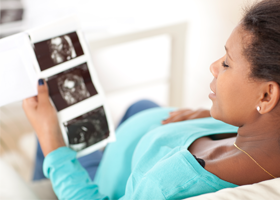Gardasil HPV Vaccine
ROUGHLY 14 MILLION* NEW CASES OF HUMAN PAPILLOMAVIRUS (HPV) ARE DIAGNOSED EACH YEAR IN THE US.
There are more than 100 types of HPV, some of which can cause common, genital, plantar, or flat warts. Other strains can cause cervical cancer or other forms of cancer that affect the mouth, upper respiratory tract, or genitals. The FDA has approved the use of Gardasil which helps prevent HPV strains that cause warts and lowers the risk of contracting HPV strains that can cause cervical cancer.
What is Gardasil?
Gardasil is a vaccine that is administered in two doses 6 to 12 months apart. It helps prevent HPV types 6, 11, 16 and 18, which are associated with the following:
- Genital warts
- Cervical cancer
- Precancerous and abnormal lesions on the cervix, vagina, and vulva
Who Should get a Gardasil HPV Vaccination?
The Centers for Disease Control and Prevention recommend HPV vaccinations, such as Gardasil, for girls and boys who are 11 or 12 years old*. Children as young as nine years old can receive these injections, but parents should discuss this with their child’s doctor first. Those who haven’t received the full set of injections by 11 or 12 years of age can receive catch-up vaccinations through age 26 for women or age 21 for men*.
Are There Side Effects?
Gardasil can cause side effects, although these are typically mild. Possible side effects include:
- Soreness at the injection site
- Nausea
- Headache
- Dizziness
- Fainting
What Else Should I Know?
Having a Gardasil vaccination does not prevent all types of cervical cancer. Girls and women should continue to see a gynecologist for routine exams in order to detect early signs of this disease or other problems.
*Genital HPV Infection--Fact Sheet (2017, November 16). Retrieved October 3, 2018, from cdc.gov: www.cdc.gov/std/hpv/stdfact-hpv.htm









